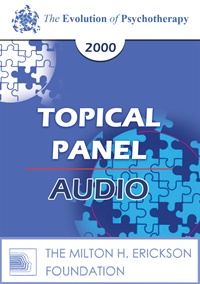EP00 Topical Panel 12 - Research in Psychotherapy - Albert Bandura, PhD; Aaron Beck, MD; Eugene Gendlin, PhD; Donald Meichenbaum, PhD
- Average Rating:
- Not yet rated
- Topic Areas:
- Topical Panels | Psychotherapy | Research
- Categories:
- Evolution of Psychotherapy | Evolution of Psychotherapy 2000
- Faculty:
- Albert Bandura | Aaron Beck, MD | Eugene Gendlin, PhD | Donald Meichenbaum, PhD
- Duration:
- 55 Minutes
- Format:
- Audio Only
- Original Program Date:
- May 27, 2000
- License:
- Never expires.
Description
Description:
Educational Objectives:
- To compare and contrast clinical and philosphical perspectives of experts.
*Sessions may be edited for content and to preserve confidentiality*
Credits
Faculty
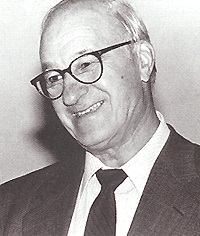
Albert Bandura Related Seminars and Products
ALBERT BANDURA, Ph.D., is Professor of Psychology, Stanford University. He has been elected to the American Academy of Arts and Sciences and the Institute of Medicine of the National Academy of Science. Dr. Bandura is a proponent of Self-Efficacy Theory. This theory and its diverse applications are presented in his recently published book, Self-Efficacy: The Exercise of Control.
Bandura has been responsible for contributions to the field of education and to several fields of psychology, including social cognitive theory, therapy, and personality psychology, and was also of incluence in the transition between behaviorism and cognitive psychology. He is known as the originator of social learning theory (renamed the social cognitive theory) and the theoretical construct of self-efficacy, and is also responsible for the influential 1961 Bobo doll experiment. This Bobo doll experiment demonstrated the concept of observational learning.
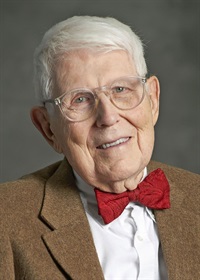
Aaron Beck, MD Related Seminars and Products
Dr. Aaron T. Beck, M.D. is University Professor of Psychiatry (Emeritus) in the Department of Psychiatry, Perelman School of Medicine at the University of Pennsylvania and director of the Aaron T. Beck Psychopathology Research Center. Based on his research on the psychological processes involved in depression and other disorders, he developed and tested Cognitive Therapy (also known as Cognitive Behavior Therapy), the most widely used form of psychotherapy in the world. He has personally trained large numbers of professionals in this specialized approach and helped to form centers for Cognitive Therapy throughout the world, devoted to both research and serving countless numbers of patients. Starting in 2007, he has directed the Beck Initiative partnership in collaboration with Arthur Evans, former Commissioner of Mental Health of Philadelphia, serving the Medicaid patients in the city. He and his group have been training providers, offering services to the most disadvantaged individuals in the city and state: severely mentally ill individuals confined to hospitals and jails, and also the homeless.
For several decades, Beck conducted research on the psychological and social factors involved in schizophrenia and developed a humanistic approach involved in activating the individual’s latent goals, motivations, and capacities, and has helped to restore large numbers to meaningful lives. His innovative approach in Philadelphia and Pennsylvania has now been extended to other states such as Georgia, Massachusetts, New Jersey, and Utah. In collaboration with the National Association of State Commissioners of Mental Health, he and his Center have started to disseminate his approach throughout the country. In addition, he and his team are working with Gary Gottlieb, Chief Executive Officer of Partners in Health to adapt cognitive therapy to the needs of individuals in 27 developing countries.
Beck has described his work extensively in 637 publications, including 24 books. He has been named by Medscape as one of the 50 Most Influential Physicians in History: 20th on the list and 1st among the living. He has received the 2006 Albert Lasker Award for Clinical Medical Research, which “transformed the understanding and treatment” of mentally ill individuals, the 2006 National Academy of Medicine: Lienhard Award for the advancement of health services, the 2013 Kennedy Community Health Award, and the National Alliance on Mental Illness Lifetime Achievement Award (June, 2017).
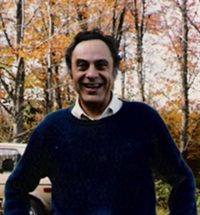
Eugene Gendlin, PhD Related Seminars and Products
Eugene T. Gendlin, PhD, is an American philosopher and psychotherapist who developed ways of thinking about and working with living process, the bodily felt sense and the 'philosophy of the implicit'. Gendlin received his Ph.D. in philosophy in 1958 from the University of Chicago where he became an Associate Professor in the departments of Philosophy and Psychology.
His philosophical work is concerned especially with the relationship between logic and experiential explication. Implicit intricacy cannot be represented, but functions in certain ways in relation to philosophical discourse. The applications of this "Philosophy of the Implicit" have been important in many fields.
His philosophical books and articles are listed and some of them are available from this web site. They include Experiencing and the Creation of Meaning, (in paperback) and Language Beyond Post-Modernism: Saying and Thinking In Gendlin's Philosophy (edited by David Levin) , both from Northwestern University Press, l997 and A Process Model.
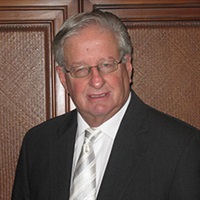
Donald Meichenbaum, PhD Related Seminars and Products
Donald Meichenbaum, Ph.D in Clinical Psychology is currently Research Director of Melissa Institute for Violence Prevention, Miami (melissainstitute.org). He is one of the founders of cognitive behavior therapy. He was voted one of the most influential psychotherapists of the 20th century. Latest books include "Roadmap to Resilience" (www.roadmaptoresilience.com) and "Evolution of Cognitive Behavior Therapy: A Personal and Professional Journey."


